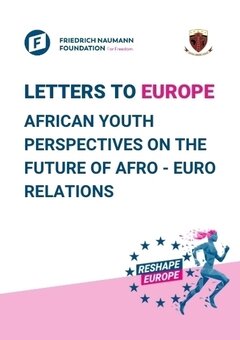Letters to Europe
"Ukraine-Krieg hat negative Auswirkungen auf Afrika"

So, Europe is widely regarded as a model for development in various aspects such as infrastructure, education, educational opportunities, curriculum, and governmental systems. Consequently, many sectors in our country look up to Europe as a benchmark for development. As a result, our infrastructure, educational curriculum, engineering practices, and even our democratic system are largely influenced by the European model.
In the 21st century, the main challenges in Africa-European relations arise due to the increased interconnectedness brought about by globalisation. As a continent and as individual countries, we have become closely intertwined. An example of this interconnectedness is evident in the Ukraine and Russian war, which had a significant impact on the global economy, causing it to slow down by 3.1%. This slowdown had adverse effects on the African continent as well.
The continent is heavily involved in the production of energy products, food products, and fuels, which may lead to higher prices. We find ourselves in a state of high dependence, where the actions of one country significantly impact others.
When considering whether Africa should increase collaboration with the European Union, I believe there are merits to both approaches. Many African countries maintain strong economic ties with their former colonisers, resulting in a substantial economic dependency. By creating opportunities to foster relationships with other European countries and non-European nations, we could decrease this dependency and establish a more balanced power dynamic between Africa and European nations. Additionally, strengthening our ties with Europe could contribute to a more economically self-reliant African continent.

